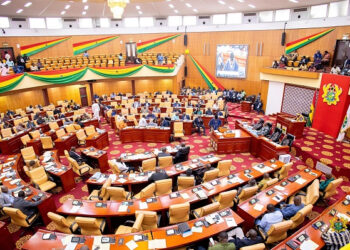With liquidity limited and the Bank of Ghana’s policy rate at 22%, rates on treasury bills are projected to rise in the coming weeks.
According to Databank Research, the tightening monetary policy direction continues to put upward pressure on yields.
T-bill rates, for example, increased across the curve, with the 91-day yield at 27.72% (+38bps) and the 182-day yield at 29.29% (+56bps).
“In light of the policy rate hike, we expect investors to focus on T-bills in the primary market for re-pricing benefits. We expect investors would concentrate on short-term bonds in the secondary market to reduce price losses due to offshore investors’ selloffs and as banks comply with the cash reserve requirement”.
The upward pressure on yield continues
According to Databank Research’s market update, the hawkish monetary policy stance continues to put upward pressure on rates.
In an effort to control inflation, the MPC tightened policy even further with a record rise to 22% (+300bps). The Central Bank adopted further complementary measures in order to further restrain market liquidity and reduce inflation and currency pressures.
It also predicted that inflation will peak in the fourth quarter of 2022. Inflation is now at 31.7%. (July 2022).
“We expect a peak in inflation in the 4Q22 when favorable base effect kick in along with subsiding food inflation pressures due to harvest season. With liquidity constrained and the policy rate at 22%, we expect the yields to adjust upwards in the coming weeks.”
Read Also: Ghana records 249% growth in coconut export in 2021; bags $21.9m
Upcoming T-bill offer
This week’s T-bill offer on August 26th, 2022 is set at ¢1.167 billion across 91-day to 364-day maturities to refinance total maturities of ¢1.023 billion.
Secondary market
Last week, the secondary bond market experienced a rise in trades, with a total face value of ¢1.7 billion moved (up 1.35% week on week).
According to the study, the increase in trading activity was mostly due to selloffs by overseas investors and institutions looking to comply with the Central Bank’s new cash reserve requirement.
“In light of the policy rate hike, we expect investors to focus on T-bills in the primary market for re-pricing benefits. We expect investors would concentrate on short-term bonds in the secondary market to reduce price losses due to offshore investors’ selloffs and as banks comply with the cash reserve requirement”, it added.
SOURCE: myjoyonline



























